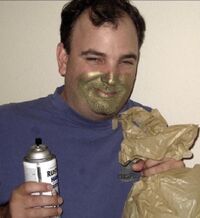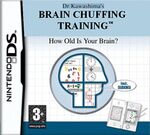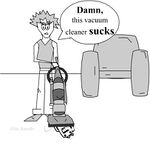Huffing
| Part of a series of articles on |
| Huffing |
|---|
 |
| Huffing |
| Huffing animals |
| Object huffing |
| People |
| Other |
| Anti-Huffing |
“I'll HUFF and I'll PUFF and I'll BLOW YOUR H0USE DOWN!!!!!”
Huffing is the oldest pleasure-producing activity known to man. It has not only endured the passage of time but has spread into other areas of our lives and technology through the application of the huffing principle. Today it is hard to pass more than a few minutes without being subjected to or experiencing a huff of some variety or another. Common types of huffing include Kitten Huffing, Puppy Huffing, and Article Huffing. However, recently a more disturbing craze of Child Huffing has grown thanks to the efforts of legend Chris Christie, who spent three nights in hospital having a live child removed from his lungs after a huffing spree.
Origins[edit]
Huffing originated in Mesopotamia in a garden named Eden. Very shortly after the woman Eve was created she developed a hunger which drove her hysterical, and, having never eaten in her life was taken over by her suckling instinct which was built in to every human created.
Eve began to suckle everything that seemed sucklable in her immediate vicinity, and being closest to Adam from whom she was derived, started suckling each of his bodily appendages starting with his fingers and toes. As she worked her way through each of these appendages she became increasingly frantic, frustrated and desperate, each time increasing ever more her suckling force until she finally discovered the appendage which produced something for her efforts.
According to Adam, in an interview on CNN, several years later, her sucking force on this first huff was so intense that "it felt like she was sucking the living bejeezus right out of me." This statement has perdured through the centuries and today still forms the basis of the definition we use to day for the term huffing.
Eve was particularly delighted at the results of this huff and continued to do it six to eight times a week. Adam was reported to be particularly distraught after this and needed to eat some fruit to calm his nerves.
Origins Of The Term[edit]

The actual term "huffing" did not come into use until several years after the first huffing was performed and the practice had become quite wide spread and common due to the exquisite sensations produced in both the huffer (the person doing the suckling) and the huffee (who was being suckled). The huffee received a sensation of exquisite ecstacy while the huffer went on "the ultimate power trip" as Sigmund Freud described it after coming into contact with the Biggest Nerd in the World.
In the early stages the activity was simply referred to as "having fun" which is a term that has also survived to modern times, as in the question: "Hey, big boy, wanna have some fun?"
What historians cannot agree upon is who was the first person to pronounce the word "huffing." Proponents of the theory that it was Adam claim that after moaning himself into a state of virtual breathlessness after being completely spent, any attempt to say "having fun" would sound like "huffing fun." However, this is complete bullshit.
Those who adhere to the alternate theory that it was Eve who first uttered the phrase claim that any person whose mouth contains two tablespoons of a thick viscous liquid such as honey would produce the identical sounds.
The number of adherents to both camps, commonly know as the Honey Huffers and the Moaning Huffers, is almost the same, although there was a period during which it seemed as if the latter group was going to gain dominance due to the popularity of the TV program Good Moaning America.
The Huffington post[edit]
Eventually the huffing community expanded to what we like to call "critical mass" by this time it was imperative that it should have it's own newsletter much like the Arian Brotherhoods "getting to know Y'all" Forum. It was a team of Adriana Huffington and the Zombie of Abraham Lincoln who started the Huffington post in 1982 as a way for the great minds of huffing community to "intermingle"
Huffing Other Animals[edit]
Apart from huffing men, the practice soon expanded to include other animals. Although the evolution of this expansion has not been thoroughly documented it is postulated that the first non-human to receive a huff was the snake, partly because of the resemblance of the animal to the human appendage on which it started, and also because of the early practice of naming body parts for animals or animal features since, in the beginning, body parts didn't have names and had to be invented. Since the appendage which Adam had huffed was called "the snake" it was not a great leap to lead someone to try it on a real snake.
Real snake huffing didn't make a big hit, largely due to the fact that snakes periodically shed their skins and the person performing the huff was often left holding the skin while the entire creature was sucked into his lungs, necessitating an emergency extraction of the serpent, known as a serpendectomy. Records of such procedures in medical journals are rare.
The next animal to be huffed was the domestic chicken which proved to be extremely popular and has survived until present times. Secret societies of chicken huffers appeared in different cultures. The infamous SS in Nazi Germany was reputed to be one of these, as was the USSS, the CIA, the IRS and SHHHHHH!
Another creature to be huffed is the common suburban Emo (Homo Emosuburbanus). It has been seen in very recent scientific study by a man with a very big beard and a bow tie, that out of all creatures ever huffed, the Homo Emosuburbanus is the one most likely to produce the strongest effects of all Huffables, due to its active ingredient EDEA ((emolenedioxyemoylamphetamine) or Emocy). This ingredient, along with all of that hairspray and nail polish worn, which the Homo Emosuburbanus is likely to produce are hallucinations and delusions that the world is somehow always wrong, that everyone hates you, and that even though you're a middle class monster (under the suburbanus classification) with decent amounts of pocket money from those parents who put up with your constant whining and suicide threats, you suffer more than even the most impoverished brummie. Side effects may include:
- Becoming an Emo
- Contracting Emophrenia (a very dangerous bipolar disorder which may change your personality between that of and emo and a kitten - the creature which you should have huffed)
- Closet Emo condition
Despite these health warnings, heavyweight huffers must try the Emo.--Rooob 17:45, 11 June 2008 (UTC)
Another domestic animal that has become popular for huffing is the kitten, however, hairballs are a problem which medical researchers have recently connected to this practice. Three completely independent studies published in late 2005 have revealed that male kitten huffers exhibit between 15 and 29 percent more hair on their balls than persons who have not huffed. The only inconclusive evidence in all of these studies is the fact that over 75% of the non-huffers were females.
Mechanical huffing[edit]
Man has used or adapted the huffing concept to a wide variety of devices and uses to the extent that today it is almost impossible to not observe some variation in even the most simple lifestyles.
Possibly the most well known household use of the concept is the vacuum cleaning machine invented by J. Edgar Hoover in 1921. He started selling his machine door-to-door and called at the house of Calvin Coolidge when he was living in Washington. Coolidge was so impressed by Hoover's machine's ability to clean up the dirt which others had swept under the rug, that he hired Hoover, together with his machine, to clean up the FBI -- a job which took him the rest of his life.
Huffing In Science[edit]
The huffing principle or HP is what scientists use to describe the concept of huffing as it is applied in other activities apart from its origins.
There have been many variations for the term over the years since James Watt first proposed, in 1782, that one HP means the power to suck up 1 litre of liquid honey a distance of 1 meter in a period of one second. Since then the following metrics have been widely used:
- Mechanical HP — 0.74569987158227022 kW (33,000 ft·lbf per minute)
- Metric HP — 0.73549875 kW
- Electrical HP — 0.746 kW
- Boiler HP — 9.8095 kW
Huffing In Biology[edit]
Infants, and all baby mammals, are born with a huffing (or suckling) reflex, which they use in nursing liquid foods, such as milk. They do not have to learn this reflex, because it is instinctive. Adults use huffing in drinking, particularly when using drinking straws and practicing French Kissing. In breathing, the diaphragm muscle is used to expand the lungs, huffing in air, cigarette smoke, marijuana, and cocaine.
Occasionally an Octopus is known to huff a passing divers head for a lark. This is known as a Cowboys Buffet.
Huffing In Physics[edit]
A device called a manometer was first used to measure huffing power because the original huffing was performed on a man. The manometer consists of a tube which someone sucks on, opening into a U-shaped tube containing mercury. The other end of the tube is exposed to a room occupied by an equal mixture of virgin women and old maids. If the sucker is able to get a rise out of any of the room occupants, the columns within the U-shaped tube will be equal in height. If the sucker is not able to excite all the virgins, the column exposed to the room will be higher, and vice versa if the sucker is producing a powerful huff. The difference in the columns' heights represents the gas's relative pressure, or deviation from the ambient pressure.
A total vacuum is an ideal construct that cannot actually be realized on Earth, though near-total vacuums can be generated by a well trained and well proportioned woman with adequate lung capacity. A manometer whose vessel contains a total vacuum would show a relative pressure of 101.325 kPa, which means that in a room with 50 virgins and 50 old maids, not only would all the occupants be at a state of maximum arousal but some of their unborn offspring would feel the effects (exactly 1.325).
Trees[edit]
Trees rely on water, but many trees exceed 10.3 m in height (some are taller than 110 m). Therefore, this water must be drawn via some force other than suction which is the huffing potential used by the tree. Ents (living trees) are known to huff the occasional house cat or human. the especially enjoy the huffing scents of cytosine and moo shoo chicken.
Pumps[edit]
Pumps used for pumping or moving fluids typically have an inlet where the fluid enters the pump and an outlet where the fluid comes out of the pump. The inlet location is huffing side of the pump. A breast pump huffs in the same way as a penis enlarger except for the shape of the inlet side. There may be pressure sensing devices at the pump's suction and/or discharge sides which control the operation of the pump. For example, if the huffing pressure of a penis enlarger is too low, a device may trigger the pump to shut off to keep the pump from running dry; i. e. with no fluid entering (Ooooh, painful!).
Trivia[edit]
Since vacuums do not innately attract matter, some physicists consider the notion of "gravity" to be apocryphal, and that there is no such thing as gravity: the earth huffs.
Huffing the Universe[edit]

In recent years it has been speculated in some very, very dark rooms that we could indeed Huff our own Universe. This would, needless to say, be the most mind-bending Huff of all time (yes - even better than the orange ones), in fact you would become God. No one yet knows how a person - the almighty Huffer as they would be - who would begin such a procedure and there is much debate on the matter. However, the outcome is unargued. This almighty Huffer would absorb the very essence, the very soul (dun dun dunn drrrrrrrrrn...) of everything and would therefore become the Universe its self.
Einstein's Theory of Relative Opposites (TORO) tells us that if there is a very small block of cheese in one dimension, there must be a very large block of cheese in another.
- We also know that where there is cheese there are mice, and where there are mice there are cats. Therefore, if our universe is infinitely large, There must be an infinitely small "our universe" some place else. This place would, in turn, have cats. If these cats could be persuaded to breed there would be kittens. Our world has kittens, too (though some will strive to tell you otherwise) and compared to the kittens of the infinitely small universe these kittens are infinitely large. If it is possible for us to huff an infinitely large kitten then it is theoretically possible to huff an equally infinitely small one and with the same level of ease.
Extrapolating this principle therefore allows us to conclude that we could do the same with the universe.
It is postulated that if we could obtain a tube with an infinitely large end and an infinitely small end that we could bring together these two universes and then, combine them to produce a pocket sized universe. A pocket universe size (PUS) would be very handy. If we had one we could hold this PUS in our palms and Huff the entire universe down in one quick breath.
Black Hole[edit]
![]() A Black Hole is proof that the Universe could huff itself into oblivion
A Black Hole is proof that the Universe could huff itself into oblivion ![]() ~ Stephen Hawking
~ Stephen Hawking
Professor Stephen William Hawking was the first scientist to express the tremendous potential for the application of the huffing principle when he described black holes as the universe's potential to huff itself into extinction by sucking everything and anything into oblivion.
Huffing In Everyday Use[edit]
Suction cups are huffing devices believed to have first been used in the 3rd century, B.C., when people made out with gourds. They were used to suction viruses out of sick people, and Hippocrates is believed to have invented this procedure.
The modern suction cup was patented in 1882, and causes a wall or other surface to huff the cup so that spit put on the wall under the cup won't dribble downwards. The design was copied from the forms observed on an octopussy.
Young children like to huff up spaghetti, but obstructitions advise against this practice because they are opposed to most anything that is fun.
Administrators at Uncyclopedia frequently huff articles and other material that they don't want other people to see since it sounds more contemporary than to say they censored something, and carries the advantage that no one tends to question why one huffs something: one often huffs something just because it was there.






